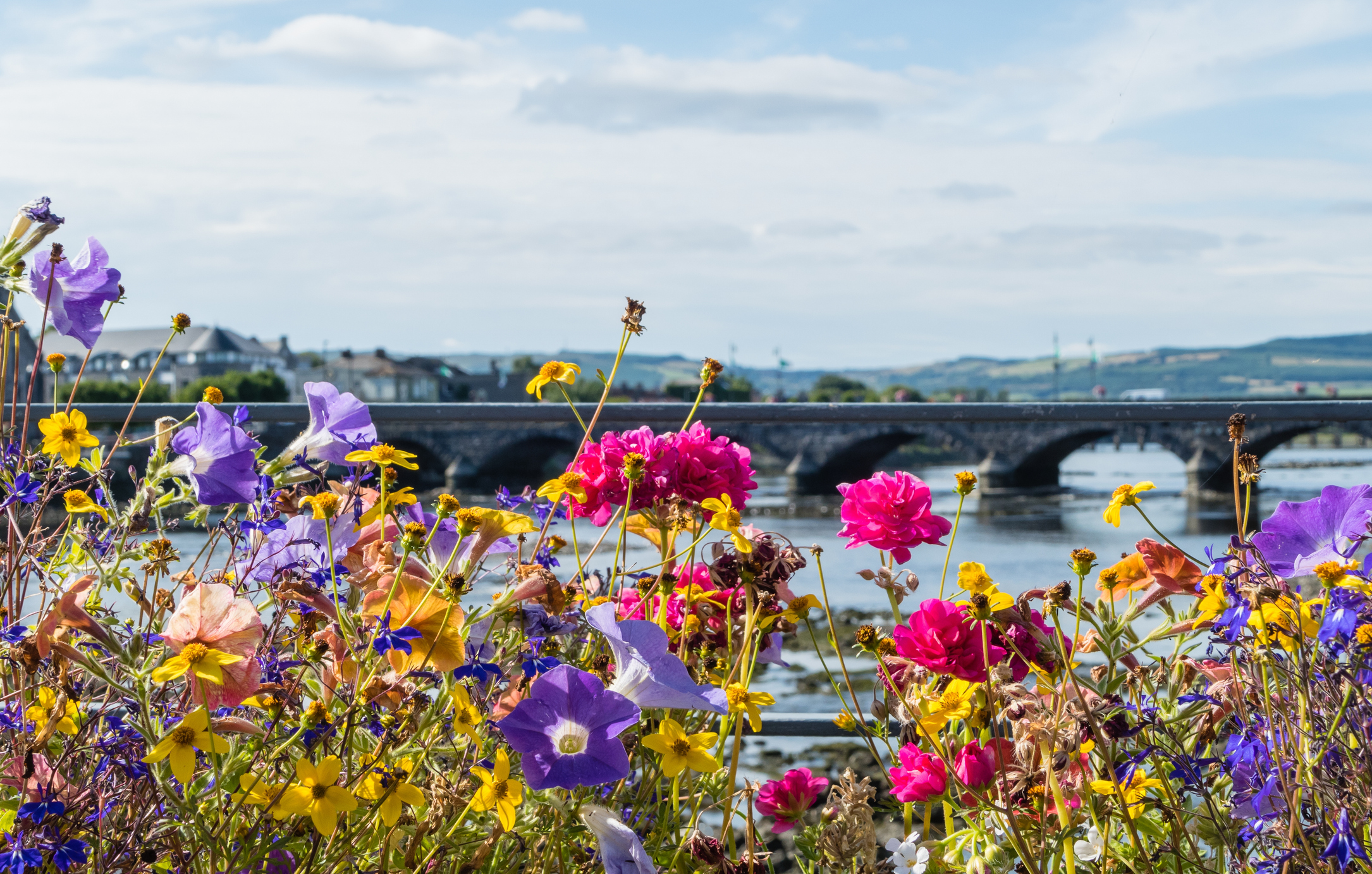As a European partnership project, Biodiverse Cities recognises the critical role of transnational learning in fostering collaboration and innovation. By sharing experiences and expertise across partners, cities, and countries, we strengthen collective knowledge. Our Transnational Peer Learning Programme (TPLP) plays a key role in facilitating this exchange. Through online and in-person sessions, partners share their expertise, challenges, and strategies, fostering mutual learning and collaboration.
During our most recent TPLP session, we had the privilege of welcoming Dominic Walsh and Mary Molloy from the Southern Regional Assembly, who presented their work on promoting Blue-Green Infrastructure within the Southern Region of Ireland and introduced their Blue Green Infrastructure (BGI) and Nature-based Solutions (NbS) Framework. Their participation was initiated by project partner Växjö, which previously collaborated with the Southern Regional Assembly in the Interreg Europe project Blue Green City. By fostering connections and building on past collaborations, Biodiverse Cities continues to amplify the impact of transnational learning, ensuring that insights and best practices in urban biodiversity and sustainability reach beyond the project itself.
Learning from The Blue-Green City Interreg Project
The Southern Regional Assembly’s engagement with the Blue Green City Interreg Project marked a significant step in addressing core challenges related to BGI. This initiative offered an opportunity to tackle environmental and economic imperatives simultaneously, aiming to improve quality of life and enhance the region’s appeal. The project underscored the importance of embedding BGI into urban development to foster resilience and sustainability.
The Blue Green City Action Plan
A cornerstone of this project is the Blue Green City Action Plan, which addresses the challenges identified during its development and aligns with two primary objectives:
- Establishing a robust network for BGI and NbS across the Southern Region.
- Monitoring the integration and application of BGI and NbS to ensure consistent progress and impact.
The BGI and NBS Framework and Action Plan provide tools, case studies, and methodologies that enable stakeholders—local authorities, decision-makers, developers, and communities—to implement NbS effectively. Notable examples within the Southern Region include the Limerick City Green and Blue Infrastructure Strategy and the transformative Tramore Valley Park in Cork.

The Regional Spatial and Economic Strategy (RSES): Building a Green Region
The representatives from the Southern Regional Assembly showcased their Regional Spatial and Economic Strategy (RSES) during the meeting, which envisions making the Southern Region one of Europe’s greenest, most liveable, and innovative areas.
The strategy is a statutory policy framework designed to guide the Southern Region’s sustainable growth and development. It places a strong emphasis on protecting, conserving, and enhancing natural capital. The RSES Implementation Programme actively supports these policies, aligning with the vision of creating a green and resilient region. Key policy objectives range from building resilience to climate change and promoting the development of green infrastructure to protecting and enhancing ecosystem services and biodiversity. By addressing these areas, the RSES provides a comprehensive blueprint for integrating environmental imperatives into urban planning and governance.
Insights and Outcomes
The TPLP participants gained invaluable insights into the potential of BGI and NbS to address regional challenges. The session emphasised the vital role of governance, regional collaboration, and scalable strategies in achieving sustainable urban development. Initiatives being undertaken by the Southern Regional Assembly, such as the Regional Nature Forum (An Fóram Dúlra Réigiúnach) further highlight the importance of knowledge-sharing and collective action in driving meaningful change.
The Biodiverse Cities partnership learned that making biodiversity a pillar of their planning, the Southern Regional Assembly demonstrates how integrating natural solutions can enhance climate resilience, improve quality of life, and create healthier urban environments. The partnership also got an insight into their blueprint for other cities striving to balance environmental, economic, and social goals in an era of rapid urbanisation and climate uncertainty, which serves as inspiration for the partners as they work towards a boosting greener and a more biodiverse region.
